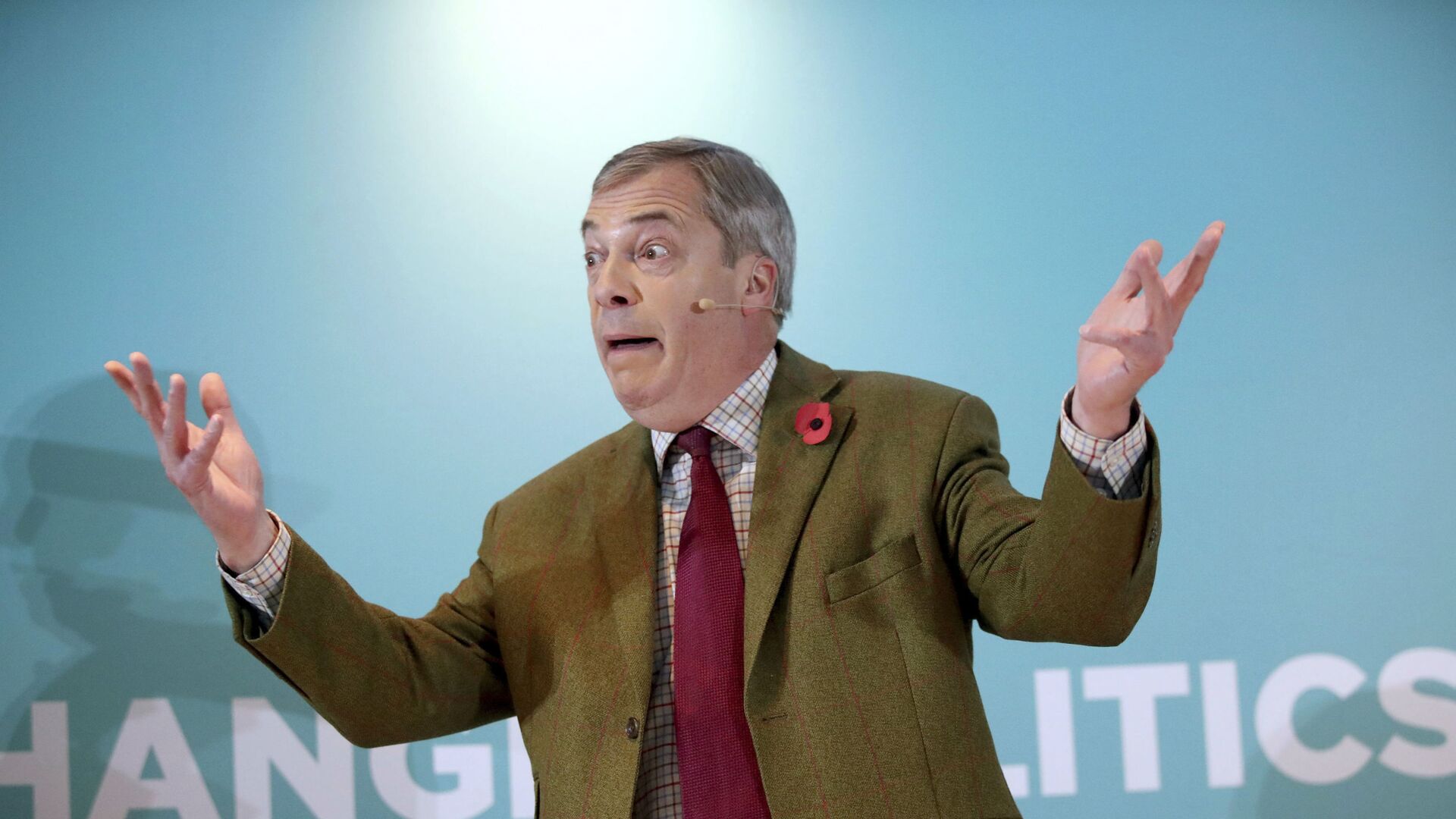https://sputnikglobe.com/20210930/nigel-farage-angry-over-uk-fuel-crisis-as-he-was-hit-by-van-while-driving-around-7-petrol-stations-1089563145.html
Nigel Farage Angry Over UK Fuel Crisis As He Was Hit by Van While Driving Around 7 Petrol Stations
Nigel Farage Angry Over UK Fuel Crisis As He Was Hit by Van While Driving Around 7 Petrol Stations
Sputnik International
Nigel Farage Angry Over UK Fuel Crisis As He Was Hit by Van While Driving Around 7 Petrol Stations
2021-09-30T23:32+0000
2021-09-30T23:32+0000
2025-04-07T10:58+0000
nigel farage
gasoline
fuel shortage
diesel
viral news
https://cdn1.img.sputnikglobe.com/img/107727/88/1077278884_0:0:3073:1728_1920x0_80_0_0_322ca6a8a5778cc28c58233c2433656c.jpg
British broadcaster and former politician Nigel Farage tweeted on Thursday that he was hit by a van while he was desperately looking for fuel.Criticizing the UK authorities for claiming that the “crisis is easing,” the GB News host said that he “went to seven petrol stations this morning and there was no fuel at any of them.”Fuel supply disruptions continue in Britain despite the fact that the government said earlier in the day that the number of stations remaining without petrol and gasoline has reduced from 60 to 27 percent.The largest gas station operators, Shell, BP and Esso, have said that there is enough fuel at British refineries, and the UK government announced on Tuesday that it is preparing to mobilize the military to use around 150 army truck drivers.Gasoline and diesel shortages emerged due to the insufficient number of truck drivers, halting supplies to gas stations. The UK fuel sector across the country needs roughly 100,000 drivers. Many left for the continent after Brexit. The situation worsened because of pandemic-induced restrictive measures, which hinder the training and examinations of new drivers.
Sputnik International
feedback@sputniknews.com
+74956456601
MIA „Rossiya Segodnya“
2021
News
en_EN
Sputnik International
feedback@sputniknews.com
+74956456601
MIA „Rossiya Segodnya“
Sputnik International
feedback@sputniknews.com
+74956456601
MIA „Rossiya Segodnya“
nigel farage, gas stations, fuel shortages in uk
nigel farage, gas stations, fuel shortages in uk
Nigel Farage Angry Over UK Fuel Crisis As He Was Hit by Van While Driving Around 7 Petrol Stations
23:32 GMT 30.09.2021 (Updated: 10:58 GMT 07.04.2025) The United Kingdom has faced dramatic fuel shortages due to a lack of qualified truck drivers, as many left the country after Brexit. Meanwhile, obtaining a driver's license has been difficult due to the COVID-19 pandemic. Interruptions in fuel supplies have affected food shipments and other crucial services.
British broadcaster and former politician Nigel Farage tweeted on Thursday that he was hit by a van while he was desperately looking for fuel.
Criticizing the UK authorities for claiming that the “crisis is easing,” the GB News host said that he “went to seven petrol stations this morning and there was no fuel at any of them.”
“Was then hit by a van whilst stationary at a roundabout. Great start to the day!” he wrote.
Fuel supply disruptions continue in Britain despite the fact that the government said earlier in the day that the number of stations remaining without petrol and gasoline has reduced from 60 to 27 percent.
The largest gas station operators, Shell, BP and Esso, have said that there is enough fuel at British refineries, and the UK government announced on Tuesday that
it is preparing to mobilize the military to use around 150 army truck drivers.
Gasoline and diesel shortages emerged due to the insufficient number of truck drivers, halting supplies to gas stations. The UK fuel sector across the country needs roughly 100,000 drivers. Many left for the continent after Brexit. The situation worsened because of pandemic-induced restrictive measures, which hinder the training and examinations of new drivers.

